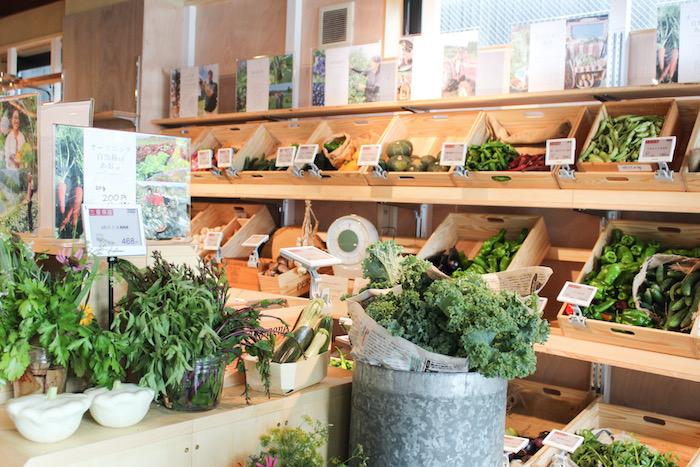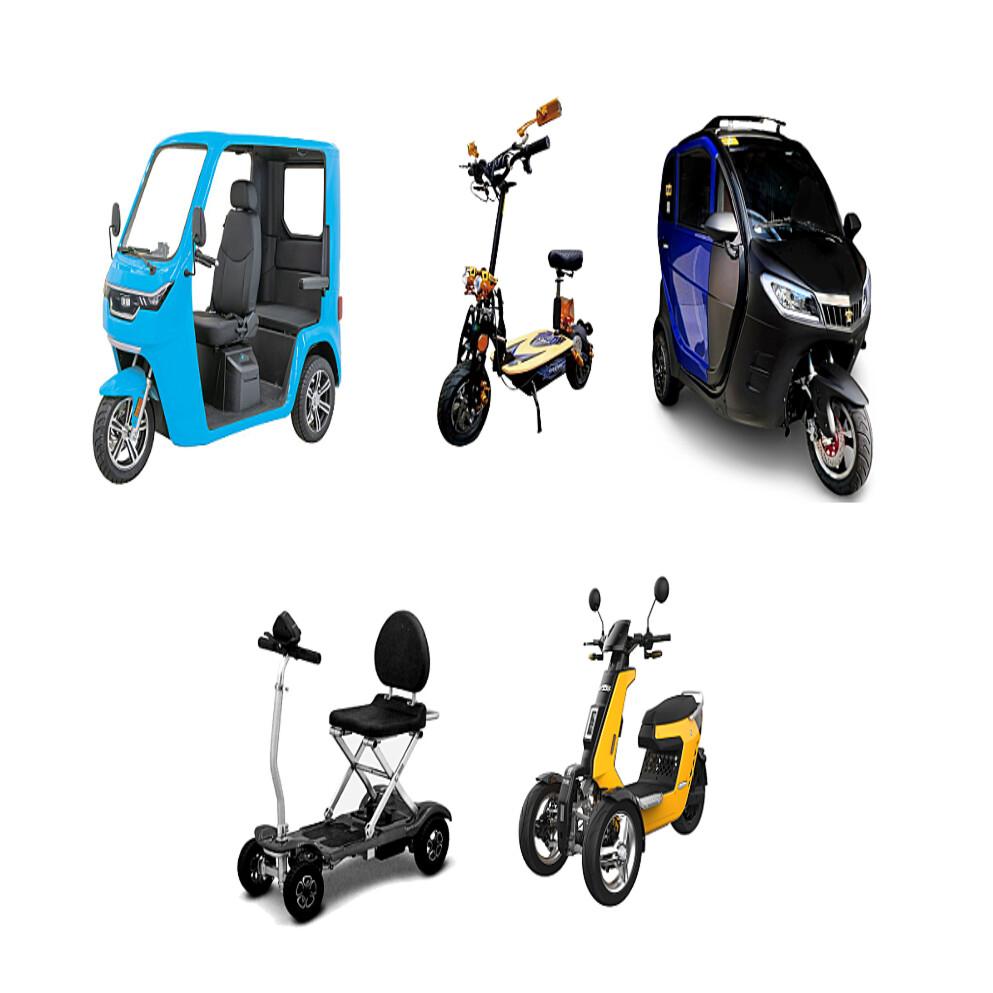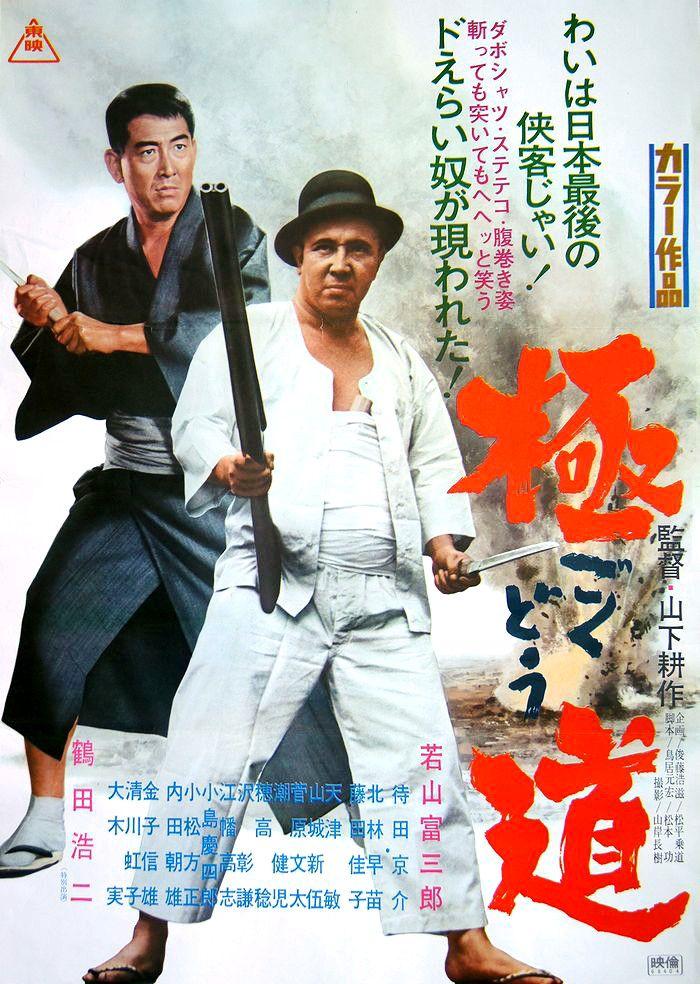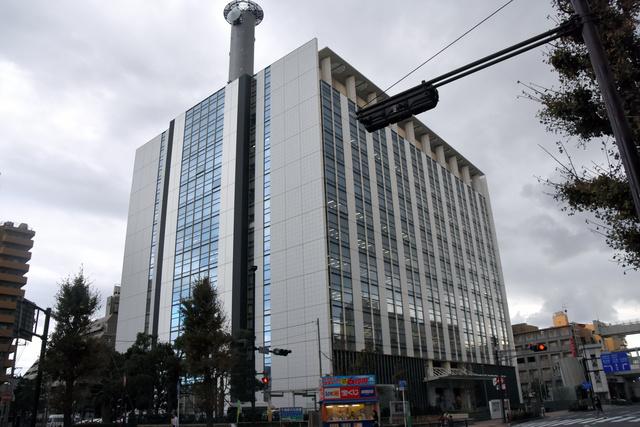Japan's first! What is the ingenuit...
09
04
Japan's first! What is the ingenuity of Kyoto's supermarket "Totoya" that does not produce garbage or food loss and the cutting-edge sales system?
Totoya Co., Ltd. (1), which started as a wholesale business of importing organic ingredients and wine in 2005 and operates a store specializing in selling by weight in Kokubunji, Tokyo, will open a zero-waste facility on the east side of the Kyoto Imperial Palace on July 31, 2021. opened the supermarket "Totoya Kyoto Main Store". It sells about 700 items of organic perishables, fair-trade groceries, daily necessities such as detergents and shampoos, and you can buy as much as you want by weight. No individual packaging. In addition, we will not provide disposable containers or paper bags, regardless of whether they are paid or free. Established in 1925, Teraoka Seiko Co., Ltd. (2), a scale maker, has introduced a state-of-the-art weighing system into its stores. NoMaDoS Co., Ltd. (3), a first-class architect office, is in charge of designing a store that can be dismantled and reused in the future by utilizing old materials. Considering the possibility of recycling when disposing, we introduced the world's first plastic-free special fixtures for weight sales, Glasbin (4) made in Germany.
"New grocerant" is a triple crop of supermarkets, restaurants and bottling
At Totoya Kyoto Main Store, leftover ingredients from supermarkets are turned into side dishes, which are cooked at restaurants that are open at night. If there is still some left over, it can be stored in a vacuum bottle for a year or two at room temperature.
A total of 6 interviews were conducted.
- Online coverage connecting Japan and France on June 3, 2021 before the opening
-開店前日の7月30日の朝10時からのメディア説明会(於:soco kitchen & bar(5)と斗々屋京都本店にて)
- At 19:00 on the night before opening, at Totoya Kyoto Main Store
-On the opening day, July 31st, at 10:00 a.m. at Totoya Kyoto Main Store
-July 31st at 18:00 at Totoya Kyoto Main Store
-August 14-23, by email about the situation after opening
Atsuko Umeda, President and CEO of Totoya Co., Ltd., who lives in France, Mona Neuhaus of Totoya Public Relations, Mariko Hori, Manager of Totoya Kyoto Main Store, Teraoka, President and CEO of Teraoka Seiko Co., Ltd. We interviewed Mr. Kazuharu.
―Is there zero waste and no food loss?
Ms. Atsuko Umeda (hereafter referred to as Umeda): We aim to eliminate food loss in the retail business. Disposal of vegetables, meat and fish is a problem in the retail industry. Totoya Kyoto store transforms into a supermarket during the day and a restaurant at night. We will provide delicious dishes with fresh ingredients in a fresh state before loss occurs.
According to Kazuharu Teraoka of partner company Teraoka Seiko, Totoya is the new "grocerant." Grocerant is an American coined word. Grocery and restaurant are integrated into Grocerant. Meals are served in supermarkets and restaurants attached to stores. Italy's Eataly (6), which has opened stores in Japan, is well known.
寺岡和治さん(以下、敬称略、寺岡):斗々屋は「新グローサラントモデル」。僕らは勝手に「三毛作」と呼んでいます。アメリカのグローサラントは、スーパーとレストランが並列していますが、斗々屋の場合、垂直に統合されています。
1) sell in supermarkets; If there is food that is nearing the expiration date, before throwing it away / selling out
2) Consumed by using it as an ingredient in restaurants. if you still stay
3) Bottle it.
Theoretically it will be zero waste. Zero food loss.
If bottled in a vacuum, it will last for a year or two
In Japanese households, freezing is the mainstream method for long-term preservation of ingredients. In Germany and France, the method of preserving at room temperature, which involves bottling in glass bottles and sterilizing by boiling in a vacuum, has long been used in ordinary households. The boiling time varies depending on the ingredients, such as 30 minutes for meat and 15 minutes for vegetables. At Totoya Kyoto Main Store, we will make full use of this vacuum bottling process to achieve zero food loss.
Umeda: The 100-year-old German company WECK (7) and the French company Le Parfait (8) use a vacuum sterilization method to sterilize a glass bottle with boiling water and seal it up. Even soups and meat patties can be kept at room temperature for a year or two. Place a silicone clip between the jar and the lid, cover the jar with hot water, and sterilize by boiling (9).
Umeda: When you have harvested too many kidney beans, which are homemade vegetables, fill a jar with hot water and salt, add the kidney beans, cover and simmer for 15 minutes. If you process too many tomatoes and eggplants in a bottle vacuum, you can eat them as a salad in the winter. I put the venison pate I prepared in early 2020 at room temperature of about 20 degrees, opened it almost a year later in the winter of 2020, and ate it, but there was no problem at all.
What is the hygiene side of selling by weight in corona misfortune?
In the corona disaster, I started to use my nerves to touch other people's hands. I wonder if the sanitary side of selling by weight is okay.
Ms. Moena Neuhaus (hereafter referred to as Neuhaus): I think that many people have touched many of the individually wrapped products that you buy at ordinary supermarkets. Touch the item and put it back on the shelf. But in a store that sells by weight, the parts you touch are fixed. The store clerk can disinfect the lids and levers of the fixtures to keep them clean. We continue to operate our business by doing so.
Teraoka: Accounting is contactless accounting. Even if it is cashless or cash, the store staff will not touch it at all. Manage sales and gross profit in real time with cloud-based product management.
The author interviewed at the end of July 2021. After that, in Kyoto, as a measure to prevent the spread of the disease, night restaurants were closed from August 2nd. Is it possible to reduce food loss to zero?
Neuhaus: It's a pity that we couldn't provide evening drinks and dinner suddenly. However, food loss countermeasures are still in place, and we have started eating in side dishes. You can use the "Totoya Cart" (described later) as a table and enjoy it around the counter or outside in front of the entrance. We have succeeded in making the ingredients last longer by bottling and so on.
By the way, as for alcohol, wine is sold by the bottle, and red and white Italian and Sicilian wines can be purchased by weight.
Create fun that goes beyond "troublesome"
When I hear that it is sold by weight, it may be good for the environment, but inevitably, "troublesome" comes first.
Teraoka: Our challenge is to create a store that sells by weight and does not generate waste. We provide the fun of selling by weight. Selling by weight is inherently fun. But the fun is overshadowed by the hassle.
Teraoka: Face-to-face sales, which have been around for a long time, are inherently fun. A shop where you buy while having various conversations with the store clerk. I think we were able to implement it in such a way that we could reduce the hassle of selling by weight and turn it into something fun.
Inside the store, there is also a machine that can turn nuts into "nut butter" on the spot as much as you like. It is a part of experience-based shopping where you can enjoy food processing.
By the way, I use both hands when weighing food by weight. Holding a basket, holding a container, weighing... can it be done all at once?
Neuhaus: This is the Totoya cart.
Neuhaus: When selling by weight, you have to carry the container, the shopping basket, the weighing, and so on. Developed.
The Totoya Cart is a collaboration between Totoya and Teraoka Seiko that transforms into a mobile table depending on how it is assembled. First, take out a folded square table and set a shopping basket to make it a shopping cart. The bulk container can be placed on a square table and has a non-slip surface to prevent the bottle from slipping. At night, if you put a round table made of old wood on top of it, it will quickly turn into a movable restaurant table.
I actually tried using the Totoya cart. The width of the aisles is limited and it was crowded because it was the opening day, but it is very easy to sell by weight because you can put your luggage and containers. Moreover, at eat-in and restaurants at night, this transforms into a movable table. Well thought out.
restaurant without menu
Totoya's Kokubunji store in Tokyo only sells processed foods, not fresh foods. However, the Kyoto branch also sells fresh produce. Among them, it seems that it is very difficult to handle sustainable fish.
Umeda: I'm studying how to deal with fish food loss because it's really difficult. I don't want to deal with things that lead to mass production, mass consumption, and mass disposal, so when I think about what sustainable fishing is, it's difficult to find a supplier. I consult with fishermen all over the country and middlemen who have direct connections with fishermen, and give priority to buying small Japanese Spanish mackerel that does not have a lot of fat, and fish that are thrown away because there are not enough of them. I'm begging you.
―(Author, same below) A restaurant called Canfora at Kyoto University serves Blue Seafood Curry (11). The curry is topped with sustainably caught fish and mackerel and scallops, which are abundant resources. It seems that it took more than a year to make the menu.
Umeda: Sustainable fishing is difficult. Fish come and go because the sea in which fish live has no boundaries. I want to use fish that are resource-managed and fish that fishermen know and catch, but there are very few in the world. It seems that resource management is difficult unless the world cooperates.
―In Tokyo, Mr. Uoharu (12) buys leftover fish from the day's auction, such as the ones that are too big, such as the star anise, which is common in Hokkaido but not available in the metropolitan area. , On the day of the event, we serve it at an izakaya. It seems that it was very difficult to make a menu on the day.
Umeda: Actually, our restaurant doesn't even have a menu.
―I think that would be a good way to reduce food loss.
Umeda: Otherwise, I don't think it's possible to prevent food loss. The chef has something in the store, and he chooses to use it today.
Umeda: With 11 seated seats, I think you can turn around without a menu, and I think you can cover it if you have several chefs who are constantly coming up with ideas. It is also difficult to always have a chef who can develop menus with a view to avoiding food waste. For green peppers and paprika, you can cook them without discarding the stems and seeds. All the vegetables are organic, so you can eat even the carrot leaves.
We are also planning to add a firewood kitchen. A waste material dealer in Kyoto told me that they can supply firewood at any time. We are planning to introduce it because we think that it will be possible to reduce it.
The skill of the chef is called into question when it comes to purchases that match the circumstances of the fields and the circumstances of the farmers.
―Shinya Ogino (13) from Table Ogino in Tokyo...
Umeda: Mr. Ogino.
―Did you know? Because he improvises and comes up with a menu by telling the farmer, "Send me all the vegetables."
Umeda: A good chef can do that. I started the company in 2005, and at that time Mr. Ogino was working as a sous chef at Restaurant Kinoshita. I remember Ogino-san loved goat cheese.
―I think it was around 2018 when I interviewed. The other day I said, "I'm going to appear on the SDGs TV program," and I saw Mr. Ogino making a menu with a match for the appearance, and it was really good.
Umeda: If we can do this, we can really reduce food loss. Depends on the skill of the chef. However, if there are many seats, it will be difficult, and if there is no chef, it will not be possible, so it will be difficult. If you vacuum-process ratatouille in a bottle, even if you don't have a chef, you can use it for sauces without blurring the taste.
―Mr. Umeda said, “Purchase according to farmers.” Mr. Ogino doesn't just say, "I'm going to make a carrot dish, so please give me carrots worth 10,000 yen." I thought that it was "purchasing according to the convenience of the field", and I thought that was also a common point.
Umeda: That's true. I am asking the farmer to let me know if it looks like it will go bad in about 3 days. When I am asked, "Can you grow 80 kilograms of tomatoes tomorrow?"
―How many farmers do you interact with?
Umeda: We mainly have 3 or 4 restaurants in Kyoto. If we only work in the neighborhood, if a typhoon hits Kyoto, there will be no vegetables in our supermarket, so we are also connected to natural farming farmers in Kyushu and Tohoku. Many of the producers are small and often run out of stock, so we asked people who run farms in Kikuchi City in Kumamoto to take the lead in collecting them from various producers and sending them to Totoya.
Umeda: Broken tomatoes become waste at farmers, so we buy them preferentially and bottle them at the store. For that reason, I have also acquired a delicatessen license. I'm telling you that if it rains this week and next week's harvest of eggplant will be smaller, so if you can't sell anything else, please let me know.
―There is a woman named Selina Juul in Denmark who has achieved a 25% reduction in Danish food loss in five years (14). She also sells non-standard tomatoes as ketchup at the supermarket. Yao Ipponkan, a supermarket in Kyoto, can make orders in units of 1 or 2, and it feels like a variety of products in small quantities (15). What about order units?
Umeda: The order unit is quite large, and since it is a bulk product, it is in units of kilograms. We also receive vegetables in kilograms, and we put them in kilograms at the cash register and in the stocking process. We also order tomatoes in units of 10 kg and 20 kg. For example, if a farmer says, "I've been rejected by a customer who sells 100 kg of tomatoes," I've created a system that allows me to handle 100 kg of tomatoes in the kitchen. We can make tomato sauce, ketchup, and ratatouille, and if we can process the bottling process, we don't have to waste anything. If we ask farmers to build co-operatives (processing facilities) and provide instructions and manuals for processing, I think food loss will be greatly reduced.
Umeda: I don't want to deal with one-way (disposable) bottles as much as possible, so I think shipping nationwide is difficult. We are talking with a bottle washing factory in Kyoto, but it is difficult to sell seasonings by weight. The manufacturer puts it in a small bottle and throws it away after one use. Recycling takes a lot of energy. We are proposing to manufacturers returnable bottles that can be washed (bottles that can be returned by customers and collected by the store for reuse). We are thinking of asking the customer to pay 30 or 50 yen for the bottle, bring the bottle, have it washed at the bottle washing factory, and return the bottle to the manufacturer for filling.
What about the conventional retail industry's "shortage penalty" and "one-third rule" and seasonal products?
The rule of the Japanese retail industry is "no shortage of items" (15). In addition, there are "1/3 rule" (16) and seasonal event-related products almost every month. What about this area?
― Japanese retailers are prohibited from running out of stock. Are you sorry for selling out this shop?
Umeda: I don't want to sell out, and I'm thinking of selling it with the feeling that if you ate fish yesterday, you don't have to eat it today.
―Ehomaki can only be sold for one day, right? Arrange as many items as possible (17). What are your thoughts on seasonal products?

Umeda: Even from the perspective of the zero-waste industry, we have a negative view of how to do business on events. If you want to eat ehomaki, I think you should suggest making it at home. It's best to make your own as much as you can eat. I think it's the responsibility of the retailers and companies that make proposals to consumers. I think it's strange to have the option to eat as much as you want when you want, whether it's at a supermarket or a convenience store.
―Do you feel like you are going to reform and challenge the one-third rule of the retail industry?
梅田:決まっていることはある程度守らないといけないですけど、小売しながら加工も飲食店としての提供もできるので、お総菜とレストランと瓶詰め加工があれば、ほぼ食品ロスを出さずにできると思います。普通のコンビニやスーパーは加工や飲食を併用せず、小売だけにビジネスを絞っています。コンビニも、ロスが出るのが分かっていて作り続けるじゃないですか。フランチャイズのオーナーさんに「陳列しろよ」「棚を埋めておかないと駄目だぞ」みたいな経営の仕方が間違っていると思うので。大手さんが改めていってくれたら、と思うんですけど。
Meat that does not burden livestock
According to Umeda, the standards for animal welfare are very low in Japan, and there are only a few companies that can do business with the desired standards. In order to purchase from a few of them, it is necessary to go through a wholesaler, and the current situation is that the transaction conditions are strict, such as buying one cow or purchasing once every few months. They are thinking of a way to store it in a minus 60 degree freezer to prevent food loss. He plans to display venison in the meat showcase, and would like to propose a gradual change from eating meat and fish every day.
Umeda: The mass-produced livestock industry hurts my heart and I can't handle it. Local governments across the country are asking hunters to "kill animals that cause damage to fields." Wild deer and wild boar meat can be killed, but there is no budget or place to process it into meat. If the government doesn't create a processing plant and create a law, 90% of it will be thrown away. Just kill and throw away.
Isn't it strange that chickens, pigs, and cows are lined up in supermarkets all over the country 24 hours a day? It's unnatural. Forcibly breeding animals in factory production, doing whatever they want according to human desires, resulting in climate change, killing and throwing away animals that come down to the fields, clearly not sustainable manner.
Good points unique to Kyoto
―Why did you choose Kyoto?
Umeda: I'm from Kansai, and since 2005, I've been involved in an organic wine and food import company in Osaka, and many of my clients are in Kyoto. I searched in Tokyo, but the rent is expensive. You can rent a house in Kyoto for about a quarter of the rent in Tokyo. Kyoto City is doing a lot of food loss countermeasures.
Umeda: Yono Farm, with whom I have known for three years, is working in Kyoto's Ukyo Ward to make Yono a sustainable town. Even if you put onion skins in the soup, the skins will remain after the soup stock is made. We also do earthworm compost. Kyoto was where everything was set up.
―Kyoto is the perfect location for this restaurant. Yaoipponkan also sells some by weight, and the marathon event is also environmentally friendly. Kyoto City is a role model for the rest of Japan that has reduced garbage by half over the past 20 years. It has been reduced from 820,000 tons in 2000 to 410,000 tons over 20 years (18). At a banquet, how much leftover food is different between when the organizer calls out and when it is not (19), or if you don't remove it from the shelf at the supermarket and sell it until the expiration date or the best before date, the food loss will be reduced by 10% and the sales will be reduced. We are doing a demonstration experiment (20) that increased by 5.7%. I don't think there are many local governments that are as proactive as Kyoto City.
Umeda: I spoke with people from four different departments, including people who promote ethical consumption in Kyoto City and people from the garbage section. I would like to work with people in the community on composting.
New system of selling by weight
Founded in 1925, how did Teraoka Seiko, which has a history of nearly 100 years, come to collaborate with the venture company Totoya?
Teraoka: On February 7, 2020, the Asahi Shogakusei Shimbun ran a feature on selling by weight. It was written as a place to experiment with selling by weight, so I jumped in. Surprisingly, Totoya is talking like a missionary about the social meaning of selling by weight and what is good for the earth with more enthusiasm than us scale makers. I was struck by their spirit, and as a technology partner, we will take care of all the technical aspects, so let's work together.
At Totoya, the weight of the container brought by the customer is recorded in advance on an RFID (electronic tag).
We have introduced a mechanism that automatically subtracts the weight of the container (= tare) when placed on the scale.
We also asked three questions about RFID.
1) Even if the cost is low, it may cost more than 2 yen per sheet.
2) Should the consumer or Totoya pay?
3) There are products made in China and the United States, but which country are they made in?
Teraoka: RFID is used to record the weight of the tare. It can be used semi-permanently, it can be written and read, and it has a built-in battery. However, the cost is negligible when calculated per time, and the shop (Totoya) bears the cost. The RFID device itself is developed at our base in Singapore and manufactured at our own factory in Batam, Indonesia.
Place the container brought by the customer on the scale, register the weight, and attach the RFID to the bottom of the bottle to make it waterproof. Since the tare weight is recorded in the bottle, when it is placed on the scale, the tare weight is automatically subtracted wirelessly. If you use the same container, you don't have to weigh it next time.
Why did selling by weight become obsolete in Japan? In the past, face-to-face sales were mainly sold by weight, but after that, mass production and mass sales became mainstream, and producers, sellers, and logistics have become accustomed to it, says Teraoka.
Teraoka: In theory, selling by weight is a rational sales method because you can buy as many items as you want. Food loss can be reduced and you can buy it without a container, so it's kind to the earth and your wallet. But in Japan, suppliers are accustomed to selling and producing individual packages, and the logistics are all set up for that, so bulk sales have not progressed. I'm used to mass production and mass sales, and I have a mentality that doesn't want to do troublesome things.
Are there any issues? According to Mr. Teraoka, the problem is that consumers will change their behavior to "bring their own container", and the store will lose money due to mislabeling the actual product and the label.
Teraoka: We have to do something like BYOC, Bring Your Own Container (21) (*). It's not sustainable unless it's proven as a paying business.
*BYOC = Bring your own container and buy as much as you like at the store
I have to find the button for what I bought from the scale screen. However, peanuts are 200 yen per 100 grams, and pistachios next door are 2,000 yen per 100 grams, a tenfold difference. I bought pistachios, but I pressed the peanut button. Calculate the price of peanuts, put it on and go through the cash register. Mistakes like this happen a lot, both in the US and in Europe. When it comes to retail, this is the number one problem.
To solve this, we attached a motion sensor to the lid of the container.
Teraoka: To buy a product, open the lid or lower the lever of the dispenser to take out the product.
Teraoka: It captures the actions necessary to make a purchase, sends it wirelessly to the scale, and displays only the items that have been taken out as a list, so there is almost no chance of pressing the wrong button (motion sensor: detects actions). , to send information to an electronic balance).
There were wholesale stores in Italy and Denmark (22). Are wholesale stores on the rise worldwide?
Teraoka: In Japan, MUJI's Ryohin Keikaku has started selling sweets and nuts by weight using dispensers at dozens of stores. Convenience store Lawson has started to expand with detergents and nuts, and it will be a few stores. However, based on my experience in selling by weight overseas, I have never been so committed to zero-waste by weight sales. The store publicly declares that it produces no food waste or packaging waste. Leading edge in the world. I think it's a store that challenges unexplored areas that no one has ever tried.
Totoya is aiming to become a franchise once the Kyoto store is on track. This is not because he wants Totoya to become a nationwide chain. “If we can create a manual for zero-waste stores, it will become a model that major companies can follow.” Society will change faster if Totoya and other companies step into zero-waste businesses. They are thinking not only of themselves, but of society as a whole.
Postscript (2021/8/257:43am)
2021年7月30日のメディア説明会の会場にもなった、斗々屋と同じ並びにある「soco kitchen & cafe」を営む水野啓さん(SOCOフーズ株式会社)によれば、オープンから1ヶ月近く経つ8月下旬の雨天の中でも、斗々屋は、常に賑わっているという。小学生の自由研究から関連事業者の視察に至るまで、大きな反響を呼んでいるそうだ。socoでも、近々、上階にオープンする宿泊施設(soco rooms)のゼロウェイスト化や、近隣の事業者や住民、学校を巻き込んだ、地域ぐるみの取り組みを立ち上げる予定とのこと。斗々屋と、その地域の活動や、全国への広がりが、今から楽しみだ。
Zero Waste Market Totoya Kyoto Main Branch
Manager: Tsugumi Seki, Mariko Hori
Totoya staff
252 Demizu-cho, Marutamachi Agaru, Kawaramachi-dori, Kamigyo-ku, Kyoto, Osawa office building 1st floor
Traffic access:
- Kawaramachi-dori, at the top of the Marutamachi intersection (see map below)
- 6 minutes walk from Keihan Main Line Jingu Marutamachi Station
- 20 minutes by bus from Kyoto Station, take Kyoto Municipal Bus 4, 17, 205 A from Kyoto Station Bus Stop A2, get off at Kawaramachi Marutamachi and walk 3 minutes
営業時間:スーパー:10:00-19:00、レストラン:18:00-23:00(予約制。8月23日現在は20:00まで。閉店時間は政府の発令に準ずる)
定休日:毎週水曜日
SNS:
nue by Totoya official website
Japan's first zero-waste supermarket in Kyoto! (Crowdfunding ended on July 5, 2021. The Kyoto store's efforts are described in detail.)
Reference information
1) Totoya Co., Ltd. official website
2) Teraoka Seiko Co., Ltd. official website
3) NoMaDoS Co., Ltd. official website
4) Completely plastic-free dispenser system “Glasbin” (Totoya Co., Ltd. official website)
5)soco kitchen & bar
6) Why can you donate the rest of the buffet? The front line of Italian food loss reduction (Yahoo! News individual, Rumi Ide, 2018/11/19)
7) WECK official website
8) Le Parfait official website
9) Boiling vacuum preservation procedure (Le Parfait official website)
10) stasher official website
11) What is "blue seafood"? Served with curry rice at Kyoto University, restaurants and company cafeterias also participate as partners (Yahoo! News individual, Rumi Ide, 2018/11/13)
12) Tsukiji Mottainai Project Uojira, nurtured by the mottainai fish of Shimane's fishing town, has repeaters who visit 100 times a year (Yahoo! News individual, Rumi Ide, June 3, 2018)
A job where you can get a lot of "thank you" Toyosu Mottainai Project Uoji Nakameguro (Yahoo! News individual, Rumi Ide, 2019/8/23)
13) "It's not the convenience of humans, but the convenience of the field. Thinking about cooking by looking at the vegetables harvested." Table Ogino's challenge to make use of non-standards without throwing away (Yahoo! News individual, Rumi Ide, 2018/10/15)
14) Reducing food loss by 25% in just 5 years The anger and power of a woman who moved the Danish royal family (Yahoo! News individual, Rumi Ide, 2019/9/13)
15) Do you need a “shortage penalty” that creates food loss? A case of a supermarket that values the origin of business (Yahoo! News individual, Rumi Ide, 2017/8/6)
16) One of the causes of food loss is the "1/3 rule" What is Japan's bad habit? (Aeradot, March 28, 2017)
17) What happened to the ``mass disposal problem of ehomaki'' Investigating 124 stores and 3-year data trends (Yahoo! News individual, Rumi Ide, 2021/2/4)
18) Ranking with the least amount of garbage What are the top 30 municipalities nationwide? What are the five factors that reduce 2 trillion yen of garbage annually (Yahoo! News individual, Rumi Ide, 2021/6/18)
19) Nearly halved in 16 years Why is Kyoto City's 530 (Zero Waste) measure so amazing? (Yahoo! News individual, Rumi Ide, May 30, 2017)
20) Is it true that ``Reducing food waste will shrink the economy''? Supermarkets cut food waste by 10%, sales increased by 5.7% year-on-year (Yahoo! News individual, Rumi Ide, May 22, 2018)
21) Bring Your Own Containers
22) Contributing to the reduction of food loss at “Ross Market,” a store by weight that the French started in Denmark, the country of hygge (Yahoo! News individual, Rumi Ide, 2019/11/12)
Articles related to RFID (electronic tag)
Diversity of consumer needs seen in Ministry of Economy, Trade and Industry's RFID experiment, ``Sell even if the price is higher than the list price'' (Yahoo! News individual, Rumi Ide, March 18, 2021)
Up to 50% discount on ``Onigiri whose expiration date is approaching'' at convenience stores Effects and challenges for food loss countermeasures (Yahoo! News individual, Rumi Ide, 2020/12/23)
``You can shop empty-handed'' Demonstration experiment of unmanned sales using biometric authentication and electronic tags (RFID), I went to Otemachi, Tokyo (Yahoo! News individual, Rumi Ide, March 14, 2019)
Dynamic pricing that can reduce food loss (automatic discounts when the deadline is approaching) I went to Tsuruha Drug during the demonstration experiment (Yahoo! News individual, Rumi Ide, 2019/2/22)
Ministry of Economy, Trade and Industry Convenience Store Electronic Tag 100 Billion Declaration Can Be Realized Ask Lawson, Project Top Runner (Yahoo! News Individual, Rumi Ide, 2018/6/5)
Demonstration experiment of ``electronic tags for all convenience store products'' also reducing food loss (Yahoo! News individual, Rumi Ide, April 18, 2018)


![[Kill personally developed games] Top class in app history! Too beautiful water puzzle "a [Q] ua" | Famitsu App for smartphone game information [Kill personally developed games] Top class in app history! Too beautiful water puzzle "a [Q] ua" | Famitsu App for smartphone game information](https://website-google-hk.oss-cn-hongkong.aliyuncs.com/drawing/article_results_7/2022/3/3/66755df992ff2d2b1e1ab43844ef9f88_0.jpeg)





![[Latest in 2021] 10 recommended seat covers for cars!If you want to improve the texture and functionality of the car, choose the mounting type and material. [Latest in 2021] 10 recommended seat covers for cars!If you want to improve the texture and functionality of the car, choose the mounting type and material.](https://website-google-hk.oss-cn-hongkong.aliyuncs.com/drawing/article_results_7/2022/3/3/e5b44589e77141f3a633189165fb6f60_0.jpeg)